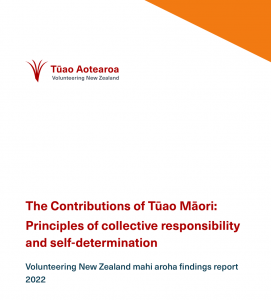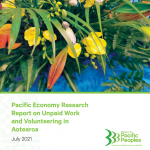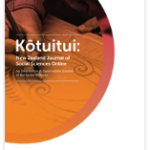 The Contributions of Tūao Māori report
The Contributions of Tūao Māori report
Volunteering New Zealand, 2022
Māori are amongst the highest likely to volunteer yet their contributions are under-represented in volunteering research. This gap has been filled by this important work stemming from focus group and surveys of volunteers as part of the State of Volunteering research 2021-22.
Grouped around five themes, the report has recommendations for organisations engaging with Māori, and commitments for Volunteering New Zealand to advocate for support for Tūao Māori.


 Recognising and celebrating Pacific unpaid work and volunteering
Recognising and celebrating Pacific unpaid work and volunteering
